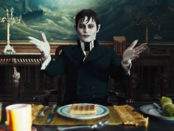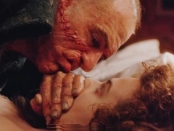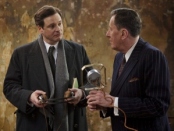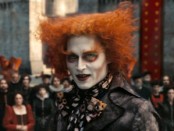[5] Tim Burton’s big-screen adaptation of Dan Curtis’ cult TV show Dark Shadows wants to be a comedy about a vampire transplanted from centuries past into the 1970s. That movie – one that focused on the vampire’s relationships with his surviving relatives, perhaps gaining their trust by helping them financially — could have been a good one. And thirty minutes into the movie, it looks …
Helena Bonham Carter
[6] Kenneth Branagh directs and stars in this somewhat faithful adaptation of Shelley’s spectacular novel. While it hits most of the plot points, it doesn’t quite capture the essence of Shelley’s work — that if you tinker irresponsibly with nature (or play God), you’ll reap the whirlwind. This could have been achieved if Branagh gave a more believable performance. He and Helena Bonham Carter are …
[7] Colin Firth plays the stuttering King George VI, who never wanted to be king for fear of his speech impediment bringing shame to him and his family. The King’s Speech focuses on the antagonistic relationship between the king and his therapist, Lionel Logue, played by Geoffrey Rush, and culminates in a live radio speech the King gives on the eve of Britain’s declaration of …
[2] There’s precious little to keep you interested in this hideous-looking and busily boring shit-fest of a film that is both a nadir for director Tim Burton’s creative trajectory and emblematic of everything wrong with Hollywood in the early 21st century. Much muchness? Indeed. Alice in Wonderland is the cinematic equivalent of a priapism.
[5] Armie Hammer (The Social Network) stars as the legendary masked man while Johnny Depp picks up the mantle of Tonto in this big-budget version of The Lone Ranger from director Gore Verbinski (The Ring) and producer Jerry Bruckheimer. It’s painfully obvious that the creative team is working very hard to rekindle the flame they ignited with the Pirates of the Caribbean franchise, complete with …
[10] A profound, yes profound, pitch black satire that has become an anthem for a “generation of men raised by women”. From a gender studies perspective, Fight Club speaks to the fragility of masculine identity and the disturbing lengths to which misguided youth will go to feel like they belong, to have identity, to be men. Fight Club is famously reviled for its graphic depiction …






